Aircraft Maintenance Engineering (AME) Course Details
2025-09-25 10:07Aircraft Maintenance Engineering (AME) Course Details
Aircraft Maintenance Engineering Course Details
Aircraft Maintenance Engineering
AME is a specialized field in aviation focused on the maintenance, repair, and overall upkeep of aircraft to ensure they meet safety and airworthiness standards. Unlike traditional engineering courses, AME (Aircraft Maintenance Engineering) is a license-based program, which qualifies engineers to inspect and certify the safety of an aircraft before each flight.
AMEs are trained to understand the intricate systems of aircraft, including engines, avionics, electrical systems, and structural components. They play a crucial role in the aviation industry, as every aircraft requires meticulous maintenance checks and servicing to operate safely.
The AME course includes both theoretical and practical training, often involving hands-on experience with real aircraft and components. In India, AME courses are approved by the Directorate General of Civil Aviation (DGCA), with categories such as A1, B1.1, B1.2, B1.3, and B2, each focusing on different types of aircraft or systems. This career path is vital for those who want to work in aviation maintenance and ensure the safety of passengers and crew through rigorous standards of aircraft maintenance.
Alpine Institute is a leading institute in Uttarakhand offering a complete range of aviation training courses. We are the only institute in the state authorized to provide AME Aircraft Maintenance Engineering courses in Category A1, B1.1, B1.2, B1.3, and B2, as approved by the Directorate General of Civil Aviation (DGCA). Hands-on Training with Diverse Aircraft To enhance our students' practical experience, Alpine Institute maintains its own fleet of aircraft. This includes popular models like the Beechcraft Bonanza A-35, Robinson R-22 helicopter, and Learjet 25-B heavy jet. Training on these diverse aircraft types provides students with a well-rounded understanding of aviation maintenance practices along with outsource training at different narrow body and wide body aircrafts at AIESL, HAL, Heritage, Shaurya Aviation, Yatih & Deccan.
Courses offered
Aircraft Maintenance Engineering Course, Details, Duration & Eligibility
AME A1
Our Short-Term Aircraft Maintenance Engineering course, also known as Line Maintenance or Cat A1, is a DGCA-approved program designed to equip you with the essential skills for a career in aircraft maintenance.
The course comprises 800 hours of intensive theoretical and practical training, aligned with DGCA regulations. Upon completion, you’ll undergo a computer-based multiple-choice examination conducted by the DGCA’s Central Examination Office.
Eligibility
- 12th with Physics, Chemistry, and Mathematics (PCM) or Diploma in Mechanical, Electrical, or Electronics & Aeronautical Engineering
- Medically fit and doesn’t have colour blindness or any other physical disabilities.
Minimum age
- Minimum age should be 17 years.
Duration
- One Year (800 hrs)
SYLLABUS OF A1 (AEROPLANE TURBINE )
Aircraft Maintenance Engineering Mechanical Course, Details, Duration & Eligibility
AME B1.1
Category B1.1 (Aeroplane Turbine) is a specialized aircraft maintenance engineering certification focused on turbine-powered airplanes. Individuals holding this certification are qualified to maintain, repair, overhaul, and troubleshoot various aircraft systems, including engines, structure, hydraulics, flight controls, and landing gear.
Eligibility
- 12th with Physics, Chemistry, and Mathematics (PCM) or Diploma in Mechanical, Electrical, or Electronics & Aeronautical Engineering
- Medically fit and doesn’t have colour blindness or any other physical disabilities.
Minimum age
- Minimum age should be 17 years.
Duration
- Two Year (2400 hrs)
SYLLABUS OF B1.1 (AIRCRAFT WITH JET ENGINE )
Aircraft Maintenance Engineering Mechanical Course, Details, Duration & Eligibility
AME B1.2
Category B1.2 is a mechanical engineering specialization focused on the maintenance and repair of piston engines and aircraft structures. Mechanical engineering students can earn an Aircraft Maintenance Engineering License in this category by passing all Basic Knowledge Module Examinations conducted by the Directorate General of Civil Aviation (DGCA) and fulfilling the required maintenance experience outlined in Civil Aviation Requirement-66.
Eligibility
- 12th with Physics, Chemistry, and Mathematics (PCM) or Diploma in Mechanical, Electrical, or Electronics & Aeronautical Engineering
- Medically fit and doesn’t have colour blindness or any other physical disabilities.
Minimum age
- Minimum age should be 17 years.
Duration
Two Year (2000 hrs)
SYLLABUS OF B1.2 (AIRCRAFT WITH PISTON ENGINE)
Aircraft Maintenance Engineering Mechanical Course, Details, Duration & Eligibility
AME B1.3
Category B1.3 is a mechanical engineering specialization focusing on the maintenance and repair of turbine engines and helicopter structures. Mechanical engineering students can obtain an Aircraft Maintenance Engineering License in this category by successfully completing the DGCA’s Basic Knowledge Module Examinations and fulfilling the maintenance experience requirements outlined in Civil Aviation Requirement-66.
Eligibility
- 12th with Physics, Chemistry, and Mathematics (PCM) or Diploma in Mechanical, Electrical, or Electronics & Aeronautical Engineering
- Medically fit and doesn’t have colour blindness or any other physical disabilities.
Minimum age
- Minimum age should be 17 years.
Duration
Two Year (2400 hrs)
SYLLABUS OF B1.3 (HELICOPTER WITH JET ENGINE)
Aircraft Maintenance Engineering Avionics Course, Details, Duration & Eligibility
AME B2
Avionics is a field specializing in aircraft instrument, radio, navigation, and electrical systems. Students in this field can earn an Aircraft Maintenance Engineering License (Category B2) by passing the DGCA’s Basic Knowledge Module Examinations and fulfilling the maintenance experience requirements outlined in Civil Aviation Requirement-66.
Eligibility
- 12th with Physics, Chemistry, and Mathematics (PCM) or Diploma in Mechanical, Electrical, or Electronics Engineering
- Medically fit and doesn’t have color blindness or any other physical disabilities.
Minimum age
- Minimum age should be 17 years.
Duration
Two Year (2400 hrs)
SYLLABUS OF B2 (AVIONICS)
Some of the Popular Career Paths Include
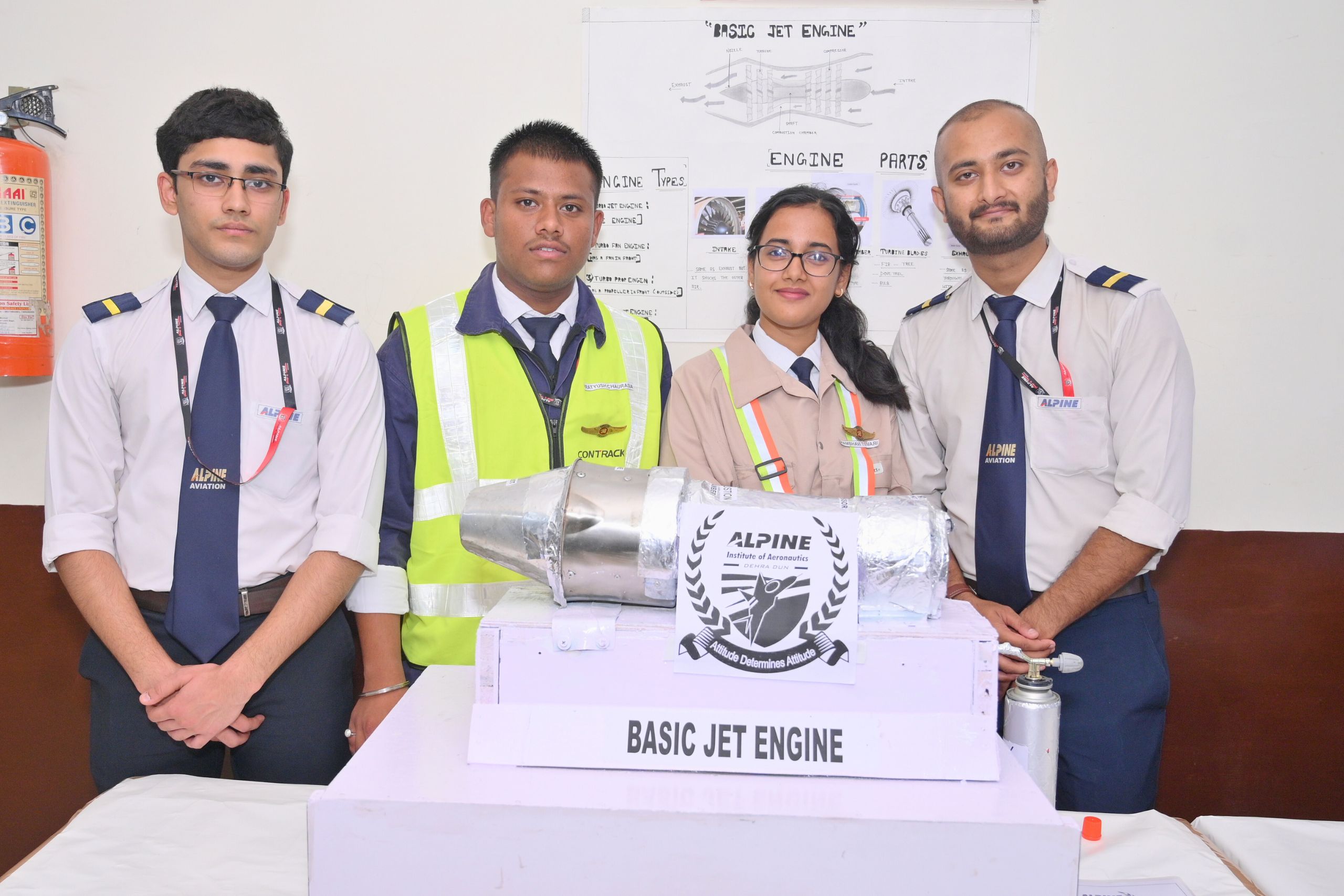
Life of a
AME Student
As an Aircraft Maintenance Engineering (AME) student at Alpine Institute of Aeronautics, life is a high-flying adventure. From the start, you're immersed in the world of aviation maintenance, gaining hands-on experience with state-of-the-art technology and real aircraft. With a perfect blend of rigorous theory and practical training, you're on your way to becoming a certified AME, ensuring aircraft safety. It's not just education; it's a launchpad to a career filled with limitless opportunities in India and around the world.
Download Brochure
Top National Recruiters
Air India
Jet Airways
IndiGo
Spirit Air
SpiceJet
GoAir
Air India
Supreme Airlines
Vistara
Alliance Air
Luwang Air
TajAir
Air Deccan
Blue Dart Aviation
Pinnacle Air
Titan Aviation
MRO & Other Organizations
Air India Limited
Air Works India (Engineering) Pvt Ltd
Arrow Aviation Services Pvt Ltd
Blue Dart Aviation Limited
Cochin International Aviation Services
Deccan Aviation
Eaton Aerospace
HAMCO
and hundreds of more.
Top Global Recruiting Organizations
All Nippon Airways
Cathay Pacific
Etihad Airway
Singapore Airlines
Japan Airline
Korean Air
Qatar Airways
Singapore Airlines and hundreds of more..
Our Proud Alumni

Animesh Banerjee

Jameson

Mritunjay Chaudhary

Lakshmi S. Nath

Pasan Pavan Kalyan

Rahul Jaiswal
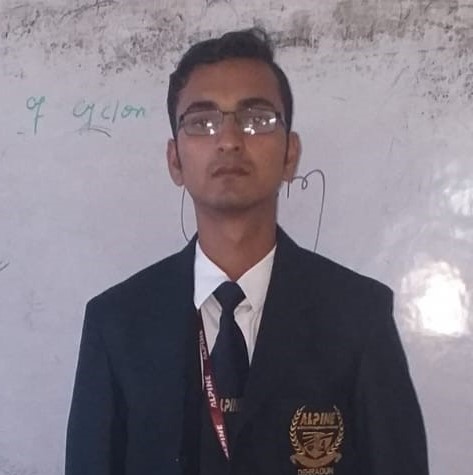
Shivam Kumar

Yadhika Ghatani
Curriculum
Semester | Code | Subject |
I Semester | 101 | Financial Accounting I |
102 | Ethics & Corporate Social Responsibility | |
103 | Business Communication | |
104 | Introduction to Aviation Industry | |
105 | English Language | |
106 | Basics of Computer | |
II Semester | 201 | Human Resource Management |
202 | Business Statistics | |
203 | French Language | |
204 | Environment Studies | |
205 | Airport Functions of Airlines | |
206 | Physical and Health Wellness | |
207 | Introduction to Aeronautics |
III Semester | 301 | Micro Economics |
302 | Financial Accounting II | |
303 | Airport Strategic Planning | |
304 | People Management | |
305 | Understanding of Interpersonal Skills | |
306 | Passenger/Customer Behavior | |
IV Semester | 401 | Entrepreneurship development |
402 | Constitution of India | |
403 | Air Ticketing Management | |
404 | Management Accounting | |
405 | Management & Organizational Behavior | |
406 | Interview Skills |
V Semester | 501 | Internship |
502 | Logistics and Air Cargo Management & Handling | |
503 | Macro Economics | |
504 | Aviation Safety & Security Management | |
505 | Leading & Team Work | |
506 | Elective -1 (Paper-1) or Elective- II (Paper-II) | |
VI Semester | 601 | Airline Customer Service |
602 | Value Education | |
603 | Business Law | |
604 | Aviation Law, Aircraft Rules & Regulations’ | |
605 | Employability Skills | |
606 | Elective -1 (Paper-1) or Elective- II (Paper-II) |
VII Semester | 701 | Decisional Techniques for Managers |
702 | E-commerce | |
703 | Research Methodology | |
704 | Aircraft Maintenance Management | |
705 | Elective -1 (Paper-1) | |
706 | Elective- II (Paper-II) | |
VIII Semester | 801 | Services Marketing for Aviation Industry |
802 | International Business | |
803 | Strategic Management for Aviation | |
804 | Dissertation with Internship | |
805 | Digital Marketing |
Photo Library
Crafting careers, fueling dreams. Where learning meets adventure, everyday.
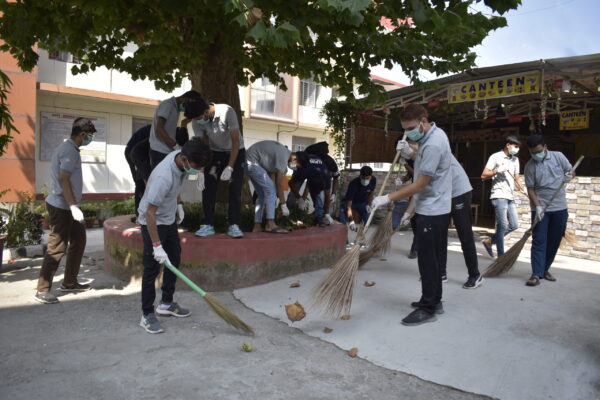
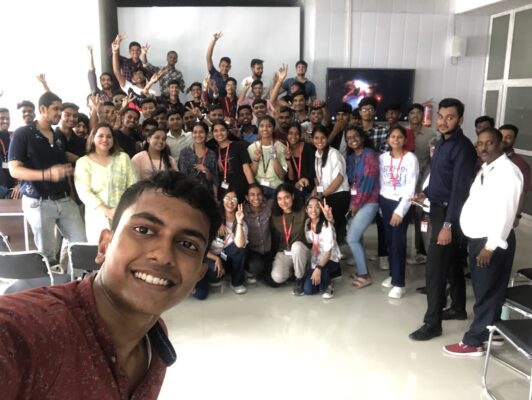
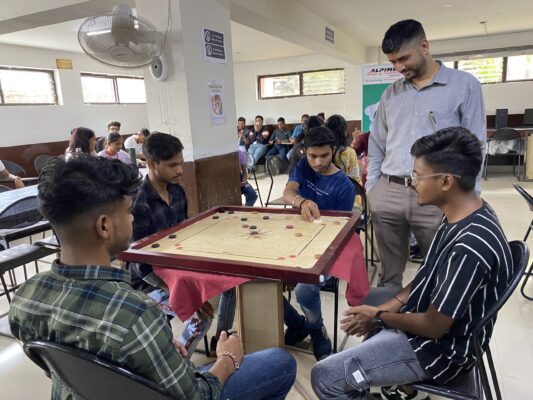

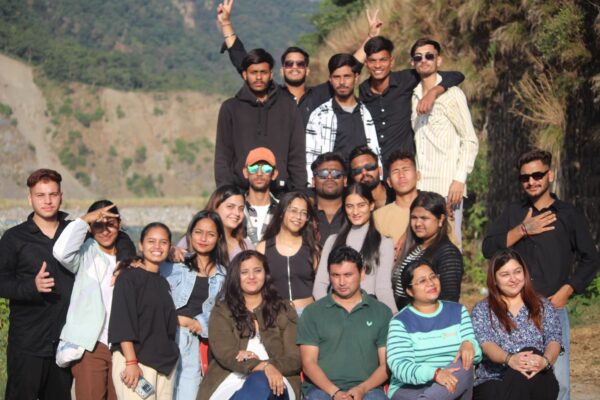
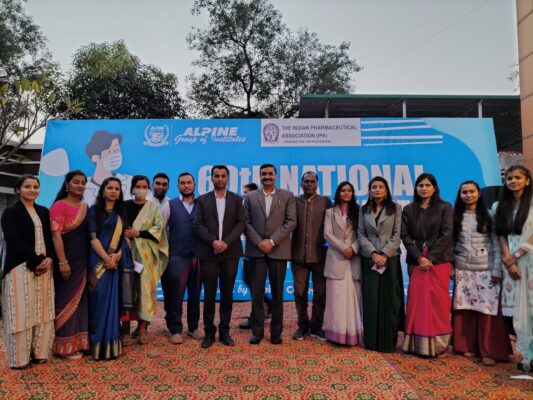
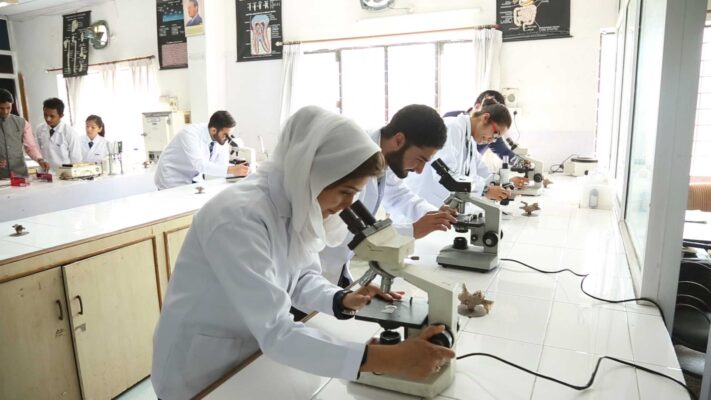
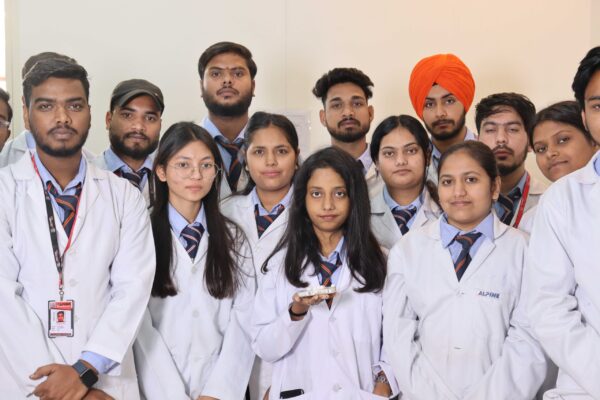
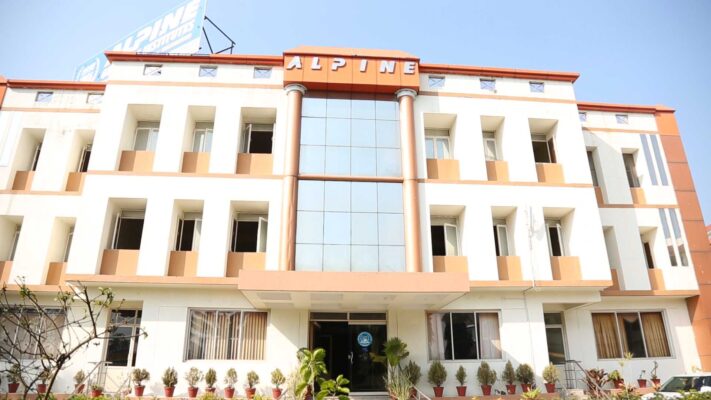

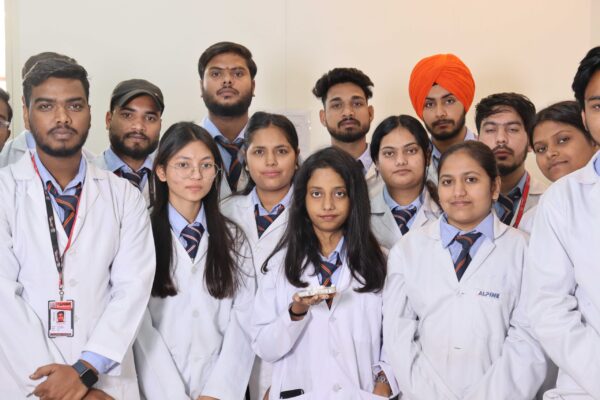
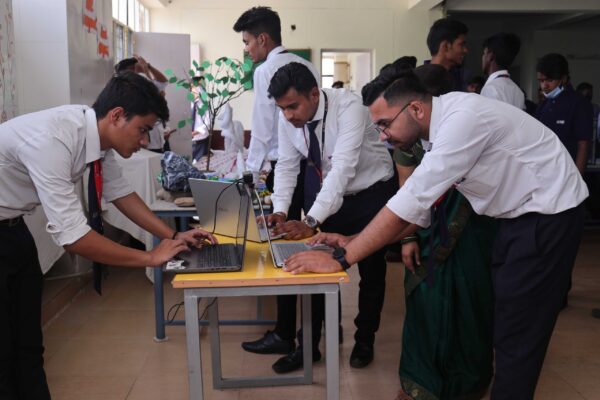
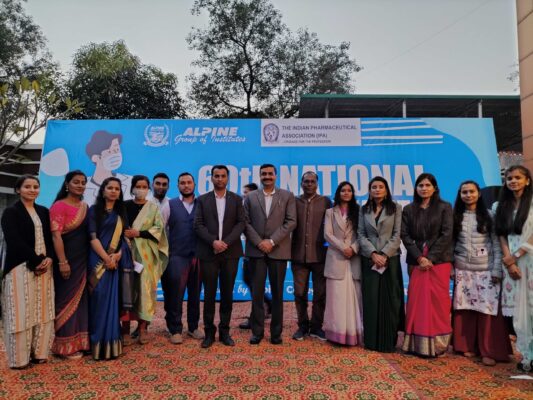
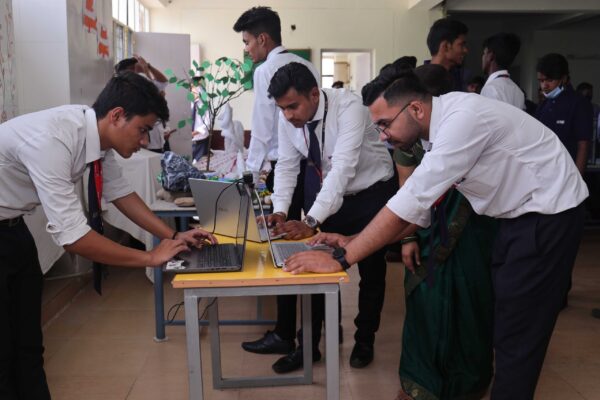
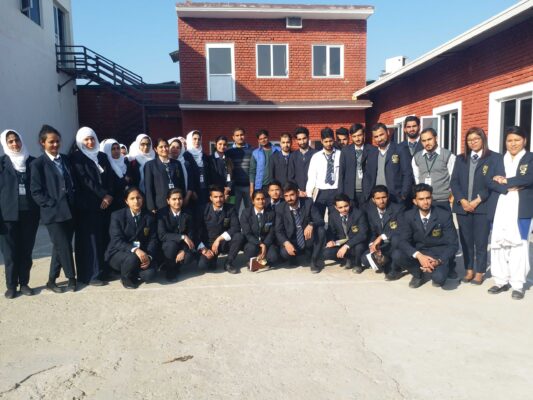
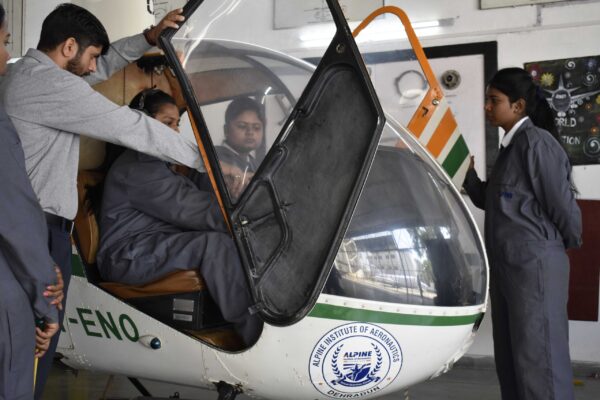
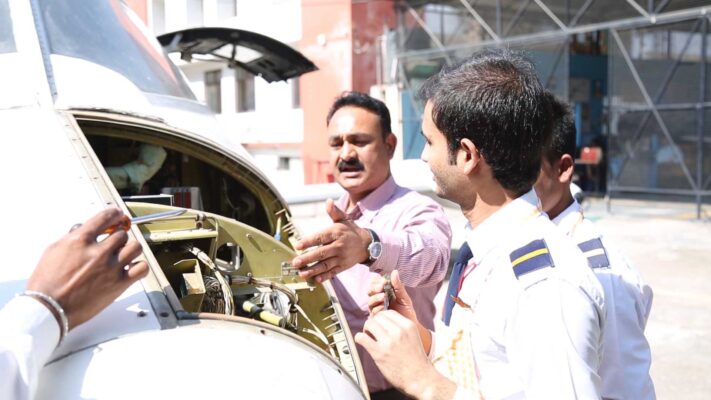
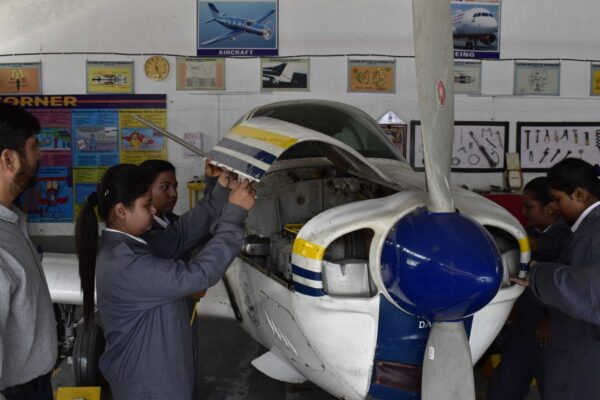

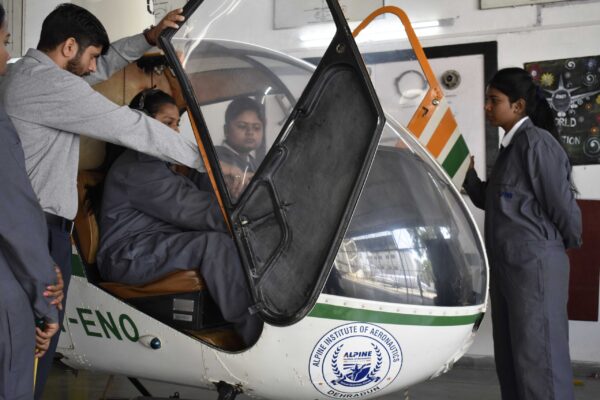
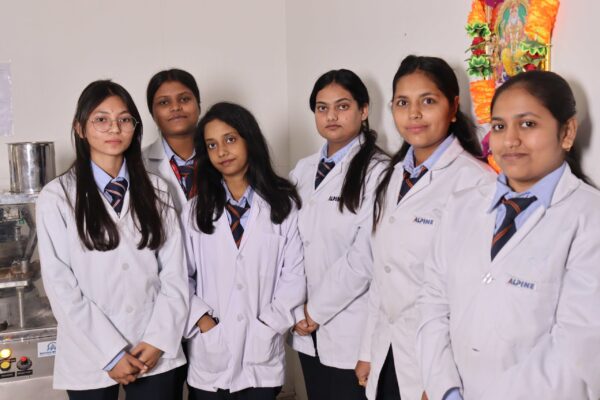
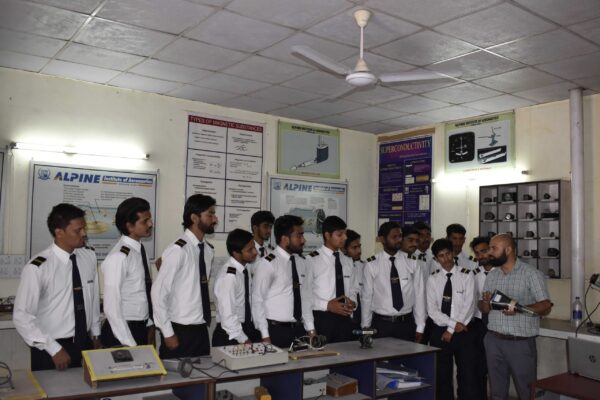
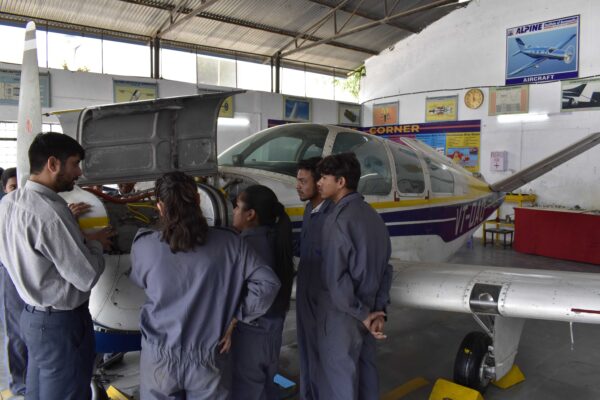
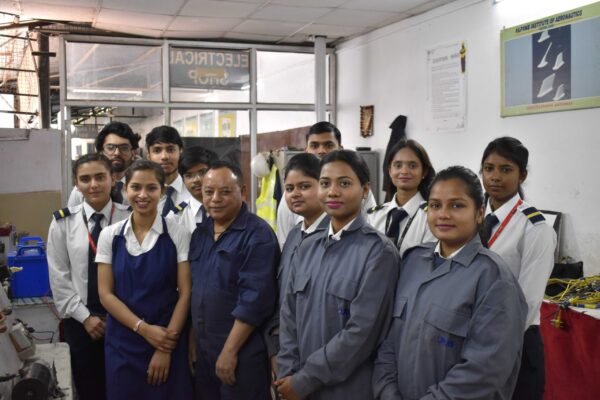
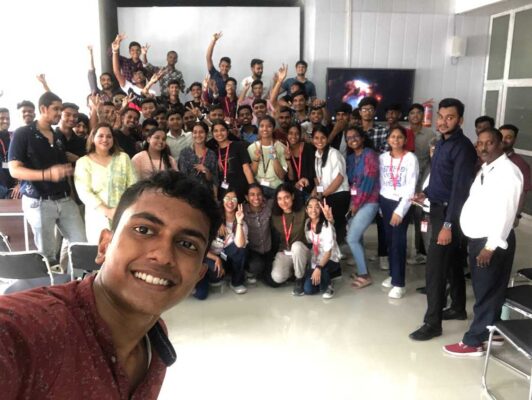
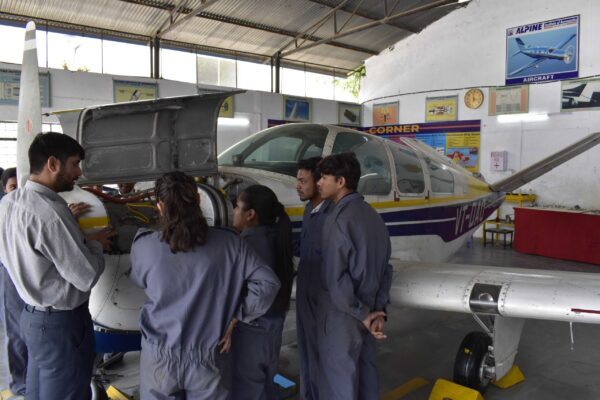
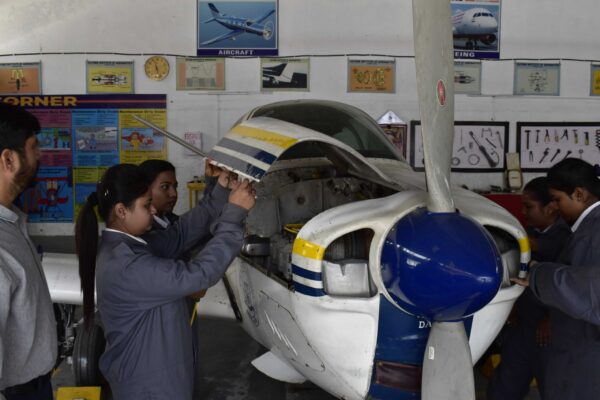
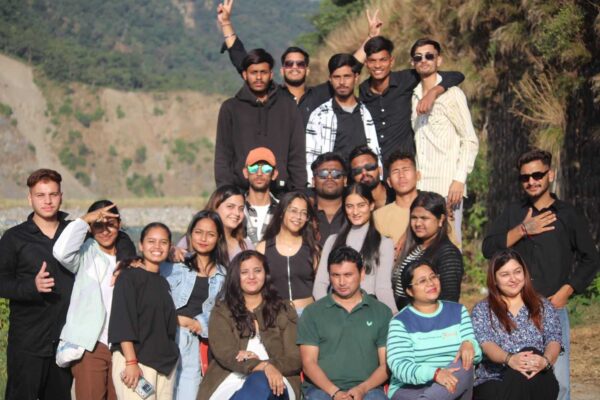

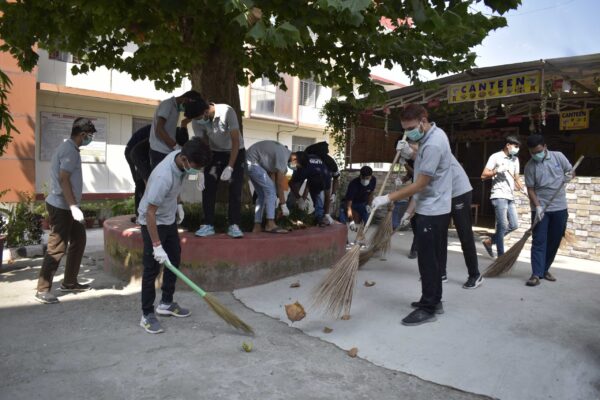
Frequently Asked Questions
Question 1: What are the career prospects associated with the AME course in India?
The Aircraft Maintenance Engineering (AME) course offers promising career prospects in the Aviation Industry. Upon completion, students can work as licensed aircraft Maintenance Engineers responsible for inspecting, repairing, and maintaining aircraft to ensure their airworthiness and safety.
Job opportunities exist in various sectors, including airlines, maintenance, repair, and overhaul (MRO) organizations, aircraft manufacturers, and regulatory authorities. With the continuous growth of the aviation industry, there’s a steady demand for skilled AME professionals globally, offering opportunities for career advancement, specialization, and competitive salaries. AME students play a vital role in ensuring the safety and reliability of air transportation systems.
Question 2 : Where does the category B1.1 engineers get employment?
Category B1.1 engineers typically responsible for heavy aircraft with jet engine, secure employment in airlines, maintenance organizations, aircraft manufacturers, and regulatory bodies. They specialize in mechanical systems of fixed-wing aircraft, ensuring airworthiness and safety through inspection and maintenance. Global demand for skilled B1.1 engineers remains high, offering competitive salaries and opportunities for career growth and specialization within the aviation industry.
Question 3 : Where does the category B1.2 engineers get employment?
Category B1.2 engineers specialize in maintaining and servicing small aircraft, like fixed-wing planes with piston engine. They’re employed in general aviation, flying schools, aerial survey, air taxi services, and corporate flight departments. Responsibilities include inspecting, repairing, and ensuring compliance with safety regulations. With rising demand for small aircraft services across industries, these engineers are highly sought after for their expertise in ensuring airworthiness and safety. They play a crucial role in enhancing operational efficiency and reliability.
Question 4 : Where does the category B1.3 engineers get employment?
Category B1.3 engineers specialize in maintaining helicopters with jet engine, employed in sectors like airlines, offshore oil, and gas, emergency services, law enforcement, and search and rescue. They inspect, repair, and ensure compliance with safety regulations and manufacturer standards, playing a vital role in helicopter fleet reliability and airworthiness across industries with increasing demand for their expertise.
Question 5 : Where does the category B2 engineers get employment?
Category B2 engineers secure employment in airlines, complete organizations, aircraft manufacturers, and regulatory bodies. Specializing in avionics systems, they ensure the functionality and safety of aircraft electrical and electronic systems. Skilled B2 engineers are in high demand globally, benefiting from opportunities for career growth, specialization, and competitive salaries within the expanding aviation industry.
Question 6 : What is the eligibility criteria for a student in an AME Institute?
To pursue an AME course, candidates must meet the following eligibility criteria
- Candidate must have passed 10+2 with PCM from a recognized board.
- Candidate must not have color blindness and any other physical disabilities.
- Candidates who have completed Diploma in Electrical Engineering, Mechanical Engineering & Aeronautical Engineering are also eligible.
Question 7 : What is the academic curriculum of an AME course?
The academic curriculum of an Aircraft Maintenance Engineering (AME) course encompasses a blend of theoretical knowledge and practical skills. It covers subjects such as Aircraft Structures, Systems, Avionics, Propulsion, Aerodynamics, Regulations, and Maintenance Practices. Students engage in classroom lectures, workshops, and hands-on training in hangars and laboratories.
Additionally, they undergo practical training on actual aircraft to gain real-world experience. The curriculum aligns with regulatory requirements set by aviation authority the Directorate General of Civil Aviation (DGCA), ensuring students are equipped with complete aviation industry-relevant knowledge and skills.




